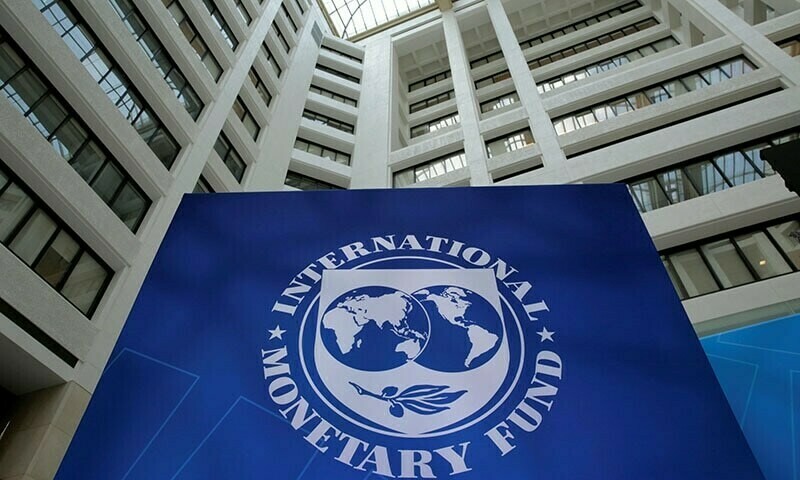
[ad_1]

The executive board of the International Monetary Fund (IMF) has stressed the “sustained implementation” of the new $7 billion bailout package, as well as broadening the tax base.
The IMF’s Executive Board said this in a statement issued on Saturday, following its approval of the 37-month Extended Fund Facility (EFF) for Pakistan, under which it has disbursed a $1bn tranche.
The government had in July agreed to the deal — its 24th IMF payout since 1958 — in exchange for unpopular reforms, including widening its chronically low tax base.
“This programme should be considered the last program,” Prime Minister Shehbaz Sharif said in July when the loan deal was secured.
The finance ministry wrangled for months with IMF officials to unlock the new loan. It came on the condition of far-reaching reforms including hiking household bills to remedy a permanently crisis-stricken energy sector and uplifting pitiful tax takings.
The recent statement, issued on the conclusion of consultation with Pakistan and approval of the bailout, said the IMF executive directors “emphasised in particular the criticality of sustained program implementation, supported by capacity development and close collaboration with developments partners, to mobilise additional financing and restore market access”.
“Directors also welcomed steps taken toward a fairer tax system and stressed the importance of additional revenue mobilisation efforts by broadening the tax base and enhancing tax administration,” the press release added.
A week ago, PM Shehbaz approved drastic measures for tax enforcement and compliance, including a ban on all banking and financial transactions for non-filers of tax returns.
The IMF board highlighted the new program would “require sound policies and reforms to support the authorities’ ongoing efforts to strengthen macroeconomic stability, address deep structural challenges, and create conditions for a stronger, more inclusive, and resilient growth”.
“Continued strong financial support from Pakistan’s development and bilateral partners will also be critical for the program to achieve its objectives,” it added.
Pakistan has won additional financing assurances from China, Saudi Arabia and the United Arab Emirates that go beyond a deal to roll over $12bn in bilateral loans owed to them, an IMF official said this week.
The IMF executive board acknowledged that the country had “taken key steps to restoring economic stability with consistent policy implementation under the 2023-24 Stand-by Arrangement (SBA)”.
“Growth has rebounded (2.4 per cent in FY24), supported by activity in agriculture, while inflation has receded significantly, falling to single digits, amid appropriately tight fiscal and monetary policies. A contained current account and calm foreign exchange market conditions have allowed the rebuilding of reserve buffers,” it noted, adding that “reflecting disinflation and steadier domestic and external conditions”, the State Bank of Pakistan had also been able to cut the policy rate by a total of 450 bps since June.
However, the IMF board noted, “despite this progress, Pakistan’s vulnerabilities and structural challenges remain formidable”.
“A difficult business environment, weak governance, and an outsized role of the state hinder investment, which remains very low compared to peers, while the tax base remains too narrow to ensure tax fairness, fiscal sustainability and meet Pakistan’s large social and development spending needs.
“In particular, spending on health and education has been insufficient to tackle persistent poverty, and inadequate infrastructure investment has limited economic potential and left Pakistan vulnerable to the impact of climate change.”
The IMF warned that Pakistan risked falling further behind its peers without a concerted adjustment and reform effort.
More to follow
[ad_2]
Source link






